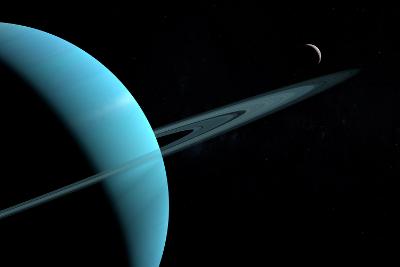Two former OU PhD students selected by NASA for outstanding research

Two academics who did their PhDs in planetary sciences at the OU, have been selected by NASA to be funded to advance their research.
Dr Jessica Barnes and Dr Mohit Melwani Daswani are among the six early-career scientists to receive funding through the Planetary Science Early Career Award (ECA) program to support outstanding early-career individuals and allow them to play an increasing role in the planetary science community. The ECA program is new to the Planetary Science Division (PSD) and is the successor to PSD’s former Early Career Fellowship program.
Dr Barnes, now Assistant Professor at the University of Arizona, does research which focuses on studying how the solar system formed and evolved, specifically by studying volatile species like hydrogen in the inner solar system. The ECA funding will allow her to further expand her research and will be used to purchase new equipment to aid in teaching students at the University of Arizona interested in planetary science. During her OU PhD, Jessica studied water in the Moon and she went on to a post-doctoral research associate (PDRA) position at the OU, during which time she set up a network of early-career researchers across the School of Physical Sciences
Dr Daswani, now a geochemist and planetary scientist at NASA’s Jet Propulsion Laboratory, does research which examines fluid-rock interactions and geochemistry as they relate to the crusts of planets like Earth, Mars, icy ocean worlds, and exoplanets. The funding will allow him to lead a series of free workshops over the next five years aimed at bringing interdisciplinary groups of scientists together to resolve discrepancies between current existing thermodynamic and geodynamic model predictions and experimental results. This work could advance our understanding of how these celestial bodies form, as well as contribute to important scientific fields like astrobiology. During his PhD at the OU, Mohit worked on several Martian meteorites.
The goal of the ECA program is to advance the research and professional development of exceptional early-career scientists by granting up to $200k to each of them. These awards will allow the promising individuals to continue their work and meaningfully contribute to the planetary science community.
Commenting on these achievements, Professor Sally Jordan, Head of School the Open University's School of Physical Sciences in the Faculty of Science, Technology, Engineering and Mathematics (STEM) said: “I am delighted to hear of these awards to not one but two of our former PhD students. This is a marvellous reflection on the calibre of the students we attract and on the first-rate training which we provide for leading scientists of the future.”
Quarterly Review of Research
Read our Quarterly Review of Research to learn about our latest quality academic output.

Contact our news team
For all out of hours enquiries, please telephone +44 (0)7901 515891
